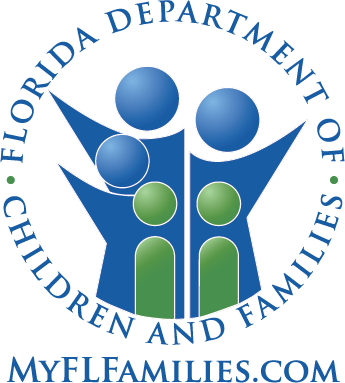What is Obsessive Compulsive Disorder (OCD)?
Obsessive-compulsive disorder (OCD) is a mental health condition characterized by uncontrollable, intrusive thoughts and repetitive behaviors. These obsessions and compulsions can significantly interfere with daily activities and cause significant distress.
Despite efforts to ignore or get rid of bothersome thoughts or urges, they keep coming back, leading to more ritualistic behavior — the vicious cycle of OCD.
Content
What does Obsessive-compulsive disorder (OCD) mean?
Obsessive-Compulsive Disorder (OCD) is a mental health disorder characterized by unwanted and distressing obsessions and compulsions. Individuals with OCD feel compelled to perform certain behaviors or rituals (compulsions) in an attempt to alleviate the distress caused by intrusive thoughts or images (obsessions).
Doctor's Perspective
OCD is a complex disorder that requires professional diagnosis and treatment. The symptoms can be distressing and significantly impact a person’s daily life, but effective treatments are available.
Psychologist's Perspective
OCD involves obsessive thoughts or images that can cause severe anxiety, leading to compulsive behaviors aimed at reducing this distress. Cognitive-behavioral therapy is a common treatment approach that can help individuals manage and reduce their symptoms.
Neurologist's Perspective
From a neurological standpoint, OCD is believed to involve abnormalities in certain brain regions and neurotransmitter imbalances. Medications, such as selective serotonin reuptake inhibitors, can be prescribed to alleviate symptoms.
Support Group Leader's Perspective
Living with OCD can be challenging, but joining a support group can provide a sense of community and valuable resources for managing symptoms and learning effective coping strategies.
Life Coach's Perspective
It’s essential to remember that OCD does not define a person. Encouraging self-compassion, practicing self-care, and setting realistic goals can help individuals navigate their daily lives while managing their OCD.
What are the symptoms of Obsessive Compulsive Disorder?
Obsessive-compulsive disorder (OCD) is characterized by two main symptoms: obsessions and compulsions.
Obsessions are unwanted and intrusive thoughts, images, or urges that cause distress or anxiety.
Obsessions
These are recurrent and persistent thoughts, impulses, or images that cause distressing emotions such as anxiety or disgust. Many people with OCD recognize that the thoughts, impulses, or images are a product of their mind and are excessive or unreasonable. Yet these intrusive thoughts cannot be settled by logic or reasoning. Most individuals with OCD try to ignore or suppress such obsessions or offset them with some other thought or action. Typical obsessions include excessive concerns about contamination or harm, the need for symmetry or exactness, or forbidden sexual or religious thoughts.
Compulsions
are repetitive behaviors or mental acts that the individual feels driven to perform in response to an obsession. The behaviors are aimed at preventing or reducing distress or a feared situation. In the most severe cases, a constant repetition of rituals may fill the day, making a normal routine impossible. Compounding the anguish these symptoms cause is the fact that most people with OCD recognize that their behaviors are irrational and yet they feel powerless to stop them.
It’s important to note that not everyone with OCD has both obsessions and compulsions. Some people experience obsessive thoughts only, without feeling compelled to carry out compulsive behaviors.
What causes Obsessive-compulsive disorder (OCD)?
The exact cause of Obsessive-compulsive disorder (OCD) is not fully understood, but it’s believed to be a result of a combination of neurobiological, genetic, and environmental factors.
Neurobiological factors
OCD may be caused by an imbalance of certain chemicals in the brain, such as serotonin. It’s also possible that OCD stems from abnormalities in specific brain regions, particularly the orbitofrontal cortex and the basal ganglia. However, further research is needed to fully understand these relationships.
Genetic factors
While there is evidence of a genetic link, specific genes involved in OCD are still being investigated. Identifying these genes could lead to a better understanding and more targeted treatment options.
Environmental factors
Factors like childhood trauma or a stressful event can contribute to the development of OCD. These experiences can trigger the onset of OCD symptoms in people who are genetically predisposed to the disorder.
Is OCD an anxiety disorder?
Yes, Obsessive-Compulsive Disorder (OCD) is classified as an anxiety disorder. It is characterized by recurring, unwanted thoughts or obsessions and repetitive behaviors or compulsions. These obsessions and compulsions can cause significant distress and anxiety.
Is OCD genetic?
Yes, Obsessive-Compulsive Disorder (OCD) does have a significant genetic component. Research using identical twins and the relatives of people with OCD suggests that genetics play a major role in a person’s risk for developing OCD. However, genetics alone do not determine the development of OCD. Environmental factors, psychological influences, chemical imbalances in the brain, and childhood experiences also play a role in the onset and severity of OCD symptoms.
What are the main types of Obsessive Compulsive Disorder?
Schizoaffective disorder is considered a disability under the Social Security Administration’s guidelines. This means that individuals with the disorder may be eligible for Social Security Disability benefits if the disorder significantly impairs their ability to work. It’s important to note that eligibility for disability benefits is determined on a case-by-case basis, and not everyone with schizoaffective disorder will qualify.
Checking
This involves the need to repeatedly check things to prevent damage, fire, leaks, or harm. Common checking behaviors include repeatedly checking if the doors are locked, appliances are off, or repeatedly confirming the safety of loved ones.
Contamination
This type is characterized by excessive concerns about cleanliness and the potential for illness or disease. It often leads to compulsive cleaning or washing behaviors.
Hoarding
This type of OCD is characterized by difficulty discarding items, a fear of losing items of no or little value, and excessive attachment to possessions leading to clutter and distress.
Intrusive Thoughts
This involves unwanted, intrusive thoughts, images, or urges that cause significant distress or anxiety. The content of the thoughts can be uncomfortable or disturbing, often involving themes of harm, risk, or danger.
Is OCD Considered Neurodivergent?
Yes, Obsessive-Compulsive Disorder (OCD) is considered a neurodivergent condition. Neurodivergence refers to variations in the human brain regarding sociability, learning, attention, mood, and other mental functions. It’s a concept that was created in the autism community and has expanded to include conditions like ADHD, dyslexia, and indeed, OCD.
OCD involves disruptions in brain functioning, dysregulation in brain circuits and neurotransmitters, differences in brain structure and activity, and atypical patterns of brain activity and connectivity. Recognizing OCD as neurodivergent helps reduce stigma and promotes understanding and support for individuals living with the condition.

ocd treatment in florida
We recognize the significant effect that Obsessive-Compulsive Disorder (OCD) can have on a person’s daily life. Our team of devoted and skilled experts is dedicated to offering extensive, tailored treatment plans to assist in managing OCD symptoms and enhancing overall well-being.
Is OCD Considered a Disability?
Yes, Obsessive-Compulsive Disorder (OCD) can be considered a disability depending on the severity of symptoms and their impact on daily functioning. It is important to consult with a healthcare professional and check your specific insurance policy for coverage and potential accommodations. By acknowledging OCD as a disability, it promotes understanding and the creation of inclusive environments that cater to the specific needs of those with OCD.
OCD may qualify as a disability under the Americans with Disabilities Act (ADA), entitling affected individuals to protection against discrimination and reasonable accommodations in the workplace. Support groups can provide a sense of belonging, coping strategies, and insights from others with similar experiences, helping individuals manage their symptoms and lead fulfilling lives.
What Causes OCD to Get Worse?
Stress and Anxiety
These are common triggers for exacerbating OCD symptoms. Identifying and managing stressors, engaging in relaxation techniques, and practicing cognitive-behavioral therapy can help mitigate their impact.
Brain Activation
Increased activation in certain brain regions, such as the orbitofrontal cortex and thalamus, can worsen OCD symptoms. Understanding and addressing these neural mechanisms through medication and therapy can help alleviate OCD.
Negative Life Events and Trauma
Compulsive behaviors and obsessions may worsen due to factors such as negative life events or trauma. Cognitive-behavioral therapy, exposure and response prevention, and stress reduction techniques can assist in managing and minimizing symptom exacerbation.
Isolation and Lack of Support
These factors can worsen OCD symptoms. Joining a support group, connecting with others who face similar challenges, and sharing experiences can provide validation, understanding, and coping strategies.
Lack of Understanding or Unintentional Reinforcement of Compulsions
This can worsen OCD symptoms. Educating oneself about OCD and providing emotional support, while encouraging professional treatment, can help improve the situation.
What are the Layers of Obsessive-Compulsive Disorder (OCD)?
From a multidimensional perspective, the layers of Obsessive-Compulsive Disorder (OCD) include:
Obsessions
These are intrusive and repetitive thoughts that cause distress.
Compulsions
These are repetitive behaviors aimed at reducing the anxiety caused by obsessions.
Distress
This is the significant discomfort and anxiety caused by the obsessions and compulsions.
Cognitive and Emotional Components
Cognitively, individuals with OCD have intrusive thoughts or beliefs. Emotionally, OCD causes significant distress and anxiety.
Neurobiological Abnormalities
Abnormalities in the orbitofrontal cortex (OFC) and the basal ganglia play a crucial role in obsessions and compulsions. These brain regions interact with each other, contributing to the development and maintenance of OCD symptoms.
Personal Experiences
From a personal perspective, OCD can be seen as having layers of fear, doubt, and shame. The fear layer involves irrational worries, the doubt layer consists of feeling uncertain and needing reassurance, and the shame layer includes feeling embarrassed about the obsessions and compulsions.
Relational Dynamics
From a relational perspective, OCD can be seen as affecting both the individual and their loved ones. There are layers of frustration, confusion, and support that come into play when trying to understand and assist someone with OCD.
These layers intertwine and contribute to the complexity of OCD. Understanding and addressing each layer is essential for comprehensive treatment and support. Open communication, seeking professional help, and promoting empathy and understanding are key in navigating these layers and promoting holistic well-being for individuals with OCD and their loved ones.
What are the treatment options for Obsessive Compulsive Disorder?
Medications
Therapy
Support Groups
Healthy Lifestyle
Maintaining a healthy lifestyle can support your recovery process. Regular exercise, a balanced diet, and adequate sleep can all contribute to better mental health. Exercise, in particular, can reduce feelings of anxiety and improve mood.
Relaxation and Stress Management
Techniques such as meditation, yoga, or tai chi can help manage stress levels, promoting relaxation and aiding in the management of OCD symptoms.
Stay Connected
Maintaining relationships with friends and family can provide the support you need to overcome challenges with OCD. They can provide a listening ear, encouragement, and assist in motivating you to stick with your treatment plan.
Still Mind Obsessive compulsive disorder (OCD) treatment in florida
You are not alone: Still Mind, Your Path to Mental Wellness
What are the long-term effects of Obsessive-Compulsive Disorder?
The long-term effects of Obsessive-Compulsive Disorder (OCD) can vary among individuals but commonly include
Chronic Anxiety
The persistent cycle of obsessions and compulsions can lead to chronic anxiety, impacting overall mental health and well-being.
Social Isolation
Individuals with OCD may isolate themselves due to embarrassment or the time-consuming nature of their rituals, leading to loneliness and a lack of social interaction.
Impaired Daily Functioning
The time and mental energy consumed by OCD rituals can interfere with daily activities, work, school, and relationships.
Structural Changes in the Brain
Repeated compulsions and obsessions can potentially lead to structural changes in the brain over time. However, early intervention and appropriate medications can help prevent these long-term effects.
Feelings of Shame and Guilt
Individuals with OCD often experience feelings of shame and guilt associated with their obsessions and compulsions, impacting their self-esteem and self-perception.
Difficulty in Maintaining Relationships and Jobs
The intrusive nature of OCD symptoms can cause difficulties in maintaining relationships and jobs, affecting an individual’s social and economic stability.
However, with early intervention and appropriate treatment, such as therapy and medication, these effects can be managed and minimized.
Still Mind Florida for Obsessive Compulsive Disorder (OCD)
Are you or a loved one struggling with Obsessive-Compulsive Disorder (OCD)? You don’t have to face it alone.
At Still Mind Florida, we understand the intricate challenges of OCD and are committed to providing comprehensive, personalized care to help you regain control of your life.
Our team of experienced mental health professionals specializes in treating OCD, utilizing evidence-based approaches such as cognitive-behavioral therapy and exposure and response prevention. We focus on addressing not only the symptoms but also the underlying patterns and behaviors that contribute to the disorder.
Don’t let OCD dominate your life. Reach out to Still Mind Florida today and take the first step towards a more fulfilling and balanced future. We’re here to support you every step of the way.









